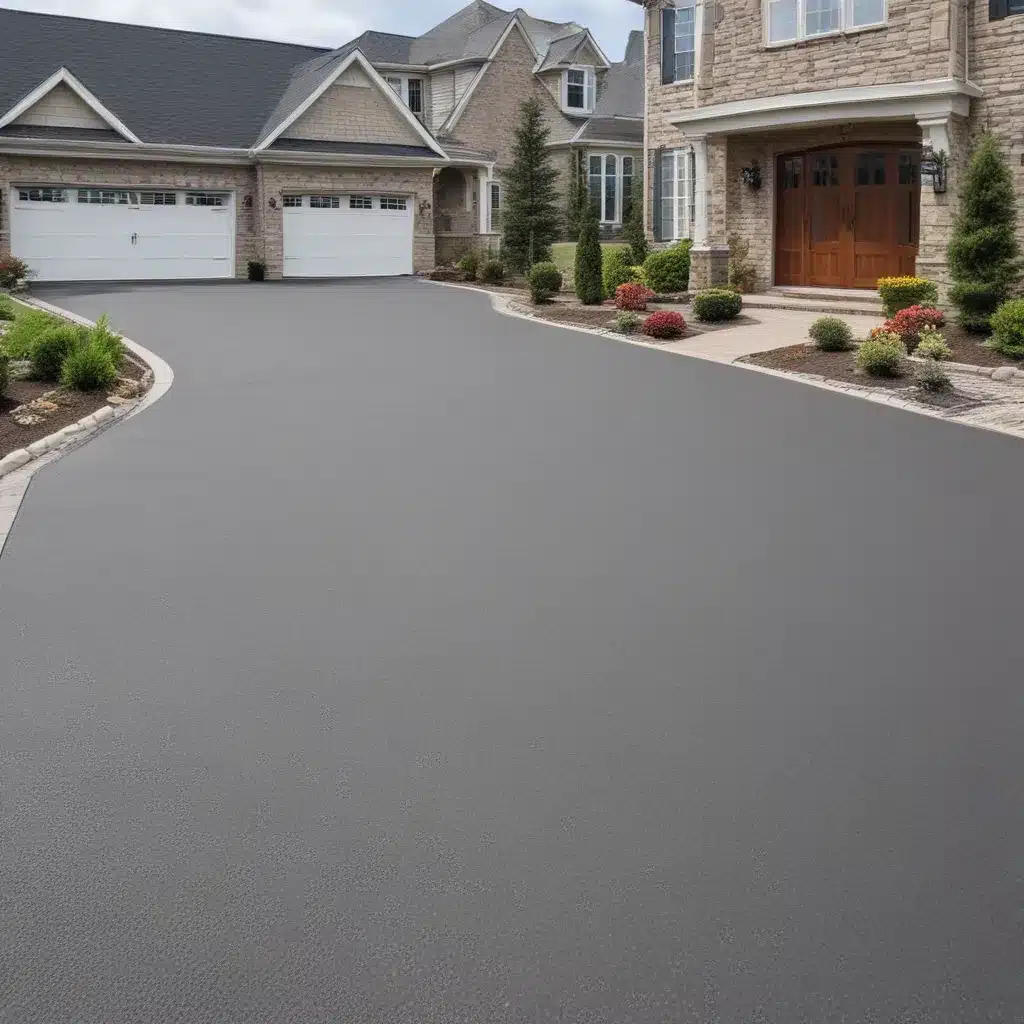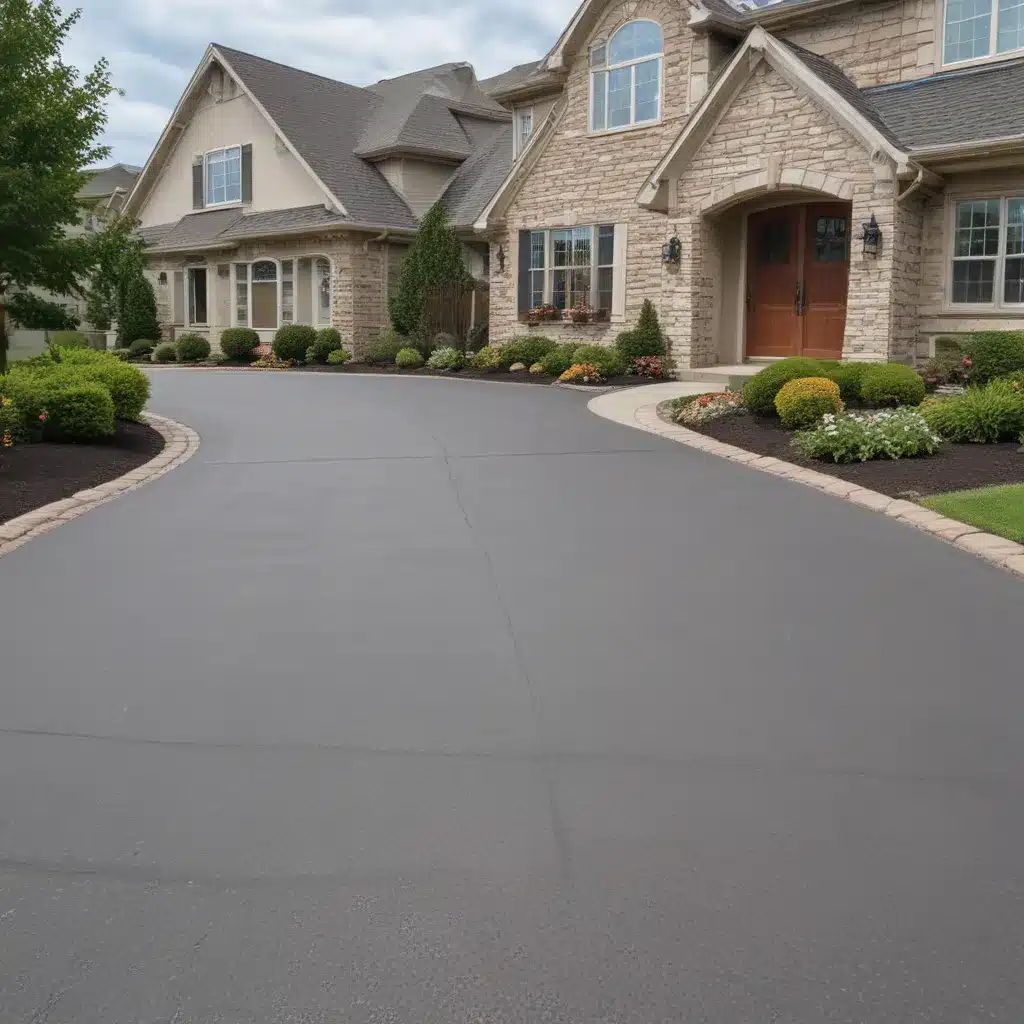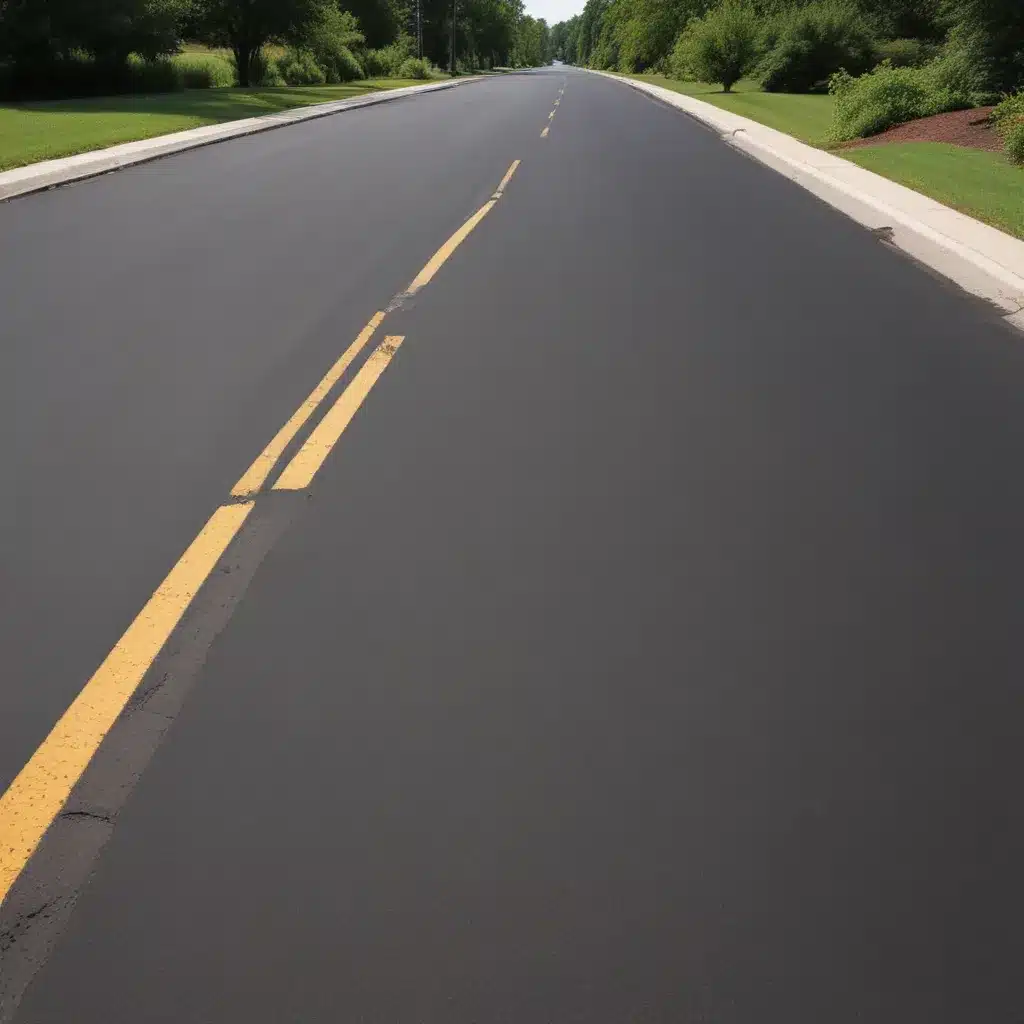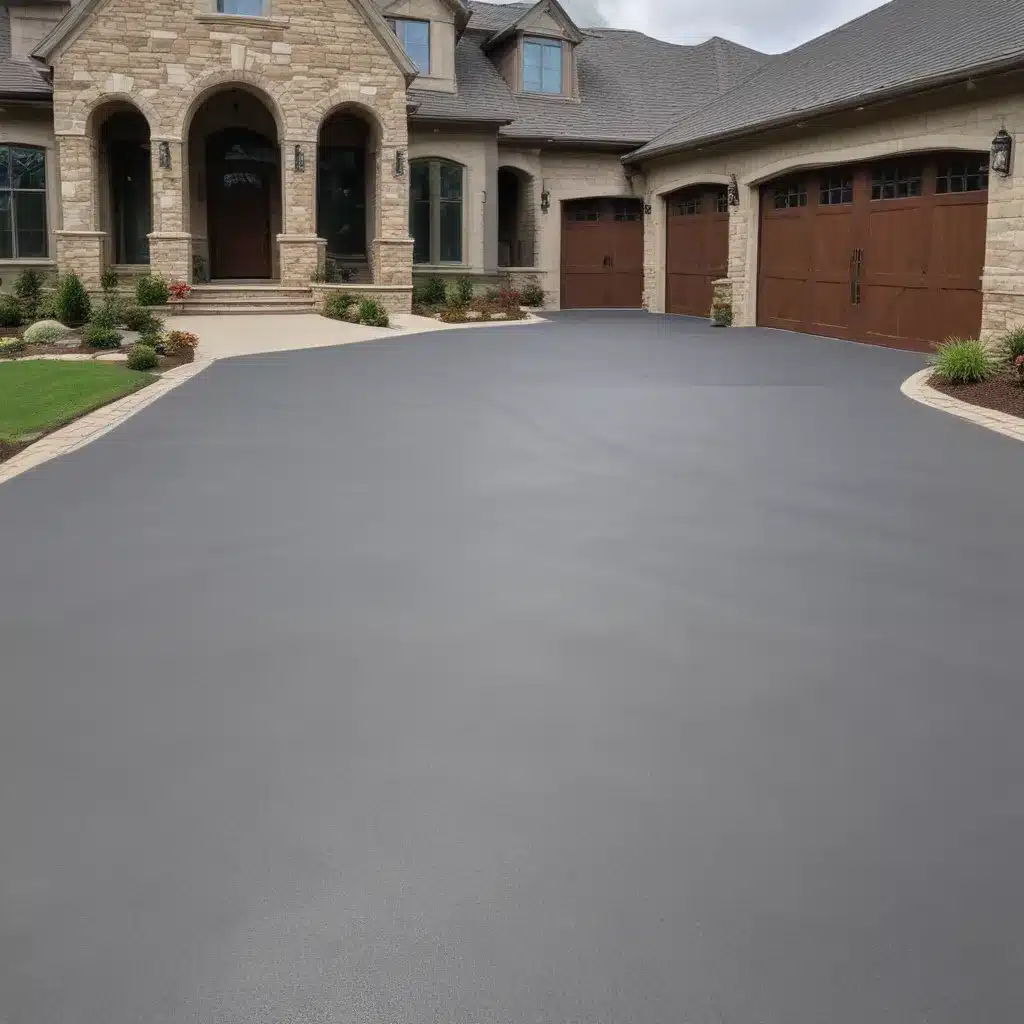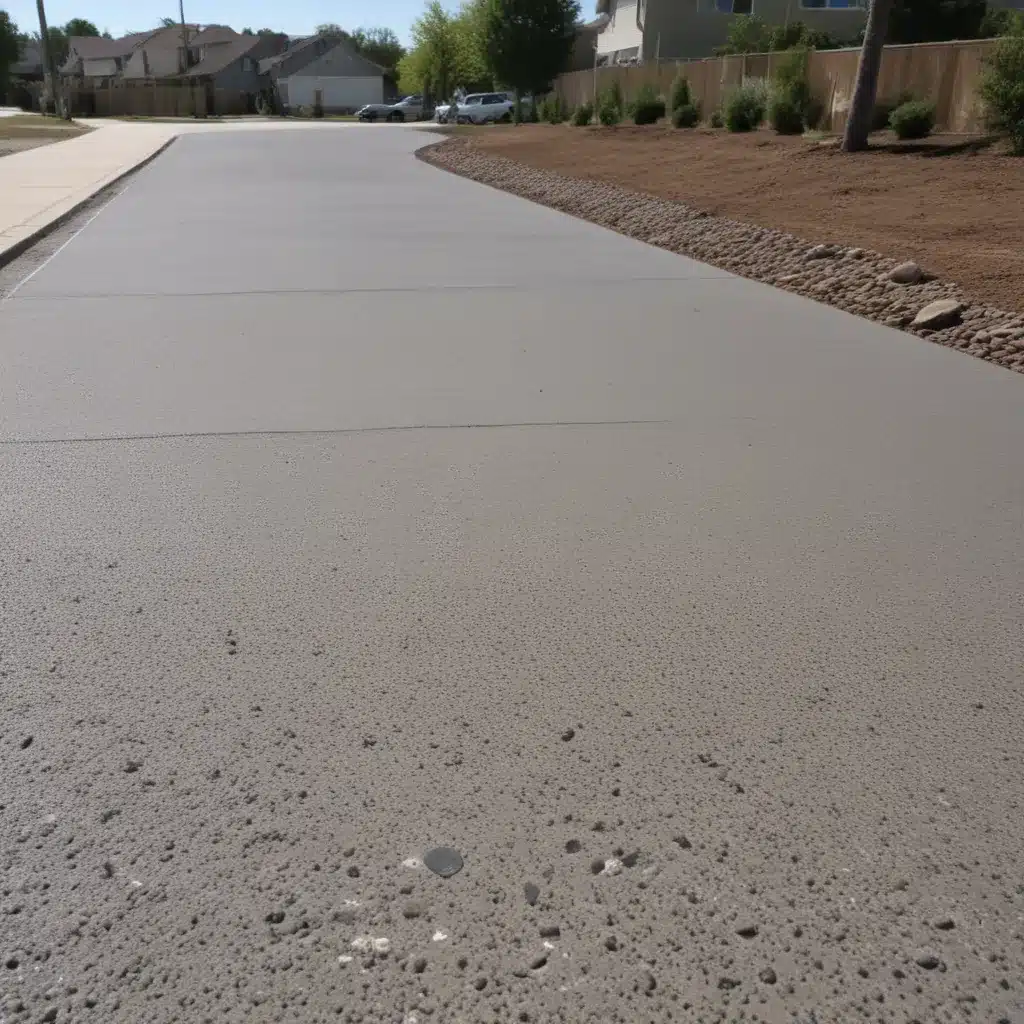Turning Your Driveway Dreams Into Reality
As a homeowner, one of the most important decisions you’ll make is the type of driveway material that will grace the entrance to your abode. After all, your driveway is not just a functional necessity – it’s the first thing visitors see when they arrive, and a key part of your home’s overall aesthetic.
So, where does one even begin when it comes to shopping for driveway materials? With so many options on the market, each with their own unique benefits and drawbacks, the process can feel daunting. But fear not, my fellow homeowner! I’m here to guide you through the labyrinth of driveway materials, offering insights and advice to help you find the perfect match for your home.
Paving the Way: Exploring Your Driveway Material Options
Let’s start by taking a look at some of the most popular driveway materials out there. From classic concrete to trendy pavers, each option has its own distinct personality and set of considerations.
Concrete Driveways: The Reliable Workhorse
Ah, good old concrete – the trusty steed of the driveway world. Concrete is a perennial favorite for a reason: it’s durable, low-maintenance, and can be customized with a variety of finishes and colors to suit your style. Plus, it’s a relatively affordable option, making it a practical choice for many homeowners.
But don’t let concrete’s practicality fool you – it can also be a canvas for creativity. Want to add a touch of elegance? Consider a stamped concrete pattern that mimics the look of stone or brick. Craving a more modern vibe? A smooth, polished concrete driveway could be just the ticket.
The downside? Concrete can be prone to cracking and discoloration over time, especially in areas with harsh weather conditions. Regular maintenance, such as sealing and resurfacing, may be required to keep your concrete driveway looking its best.
Asphalt Driveways: The Smooth Operator
If you’re after a sleek, seamless look, asphalt might be the driveway material for you. Asphalt is known for its smooth, uniform appearance, and it’s often a more cost-effective option compared to concrete.
One of the main advantages of asphalt is its flexibility. Asphalt can better withstand the effects of freeze-thaw cycles, making it a resilient choice in colder climates. It’s also relatively easy to repair, with minor cracks and potholes easily patched up.
However, asphalt does have some drawbacks. It can be more susceptible to fading and deterioration over time, especially in direct sunlight. And while it may be cheaper upfront, the long-term maintenance costs can add up, as asphalt typically requires more regular resealing and resurfacing.
Pavers: The Personalized Patchwork
If you’re looking to add a touch of personality to your driveway, pavers might be the way to go. Pavers come in a wide variety of shapes, sizes, colors, and materials – from classic brick to sleek stone to eye-catching interlocking patterns.
The beauty of pavers lies in their customizability. By carefully selecting and arranging the individual pavers, you can create a truly unique driveway that reflects your personal style and complements the architecture of your home. And if you ever want to change things up, pavers can be easily removed and rearranged.
But with great customization comes great responsibility (or something like that). Installing a paver driveway requires a bit more effort and attention to detail compared to other materials. Proper base preparation and installation is crucial to ensure a long-lasting, stable surface.
Factors to Consider When Choosing Driveway Materials
Now that you’ve got a basic understanding of some of the most popular driveway materials, let’s dive a little deeper into the factors you’ll want to consider when making your selection.
Durability and Longevity
One of the most important things to think about is the long-term durability and lifespan of your driveway material. After all, you want a surface that can withstand the wear and tear of daily use, as well as the elements.
Concrete is generally considered the most durable option, with a lifespan of 20-30 years or more if properly maintained. Asphalt, on the other hand, may need more frequent resurfacing, with a typical lifespan of 12-20 years. Pavers can be incredibly long-lasting, with some installations lasting 50 years or more, but they do require a bit more upkeep to maintain their integrity.
Climate and Weather Considerations
The climate and weather conditions in your area can also play a significant role in determining the best driveway material for your home. For example, if you live in a region with harsh winters and frequent freeze-thaw cycles, you’ll want to choose a material that can withstand the expansion and contraction without cracking or heaving.
In this case, asphalt might be the way to go, as it’s more flexible and better able to handle the stresses of changing temperatures. Concrete can also work well in cold climates, but it may require more frequent sealing and maintenance to prevent damage.
On the other hand, if you live in a sunny, arid climate, you’ll want to consider materials that are less prone to fading and deterioration from UV exposure. Pavers or stamped concrete could be excellent choices in these conditions.
Aesthetic Appeal and Curb Appeal
Let’s not forget about the all-important factor of aesthetic appeal! After all, your driveway is the first thing visitors (and potential home buyers) will see when they approach your property. You’ll want to choose a material that complements the architectural style and overall aesthetic of your home.
Concrete offers a classic, timeless look that can be dressed up or down to suit your preferences. Asphalt, with its sleek, uniform appearance, can lend a modern, minimalist vibe. And pavers? They’re the chameleons of the driveway world, able to mimic the look of natural stone, brick, or even wood to create a truly one-of-a-kind entrance.
Think about the colors, textures, and patterns that will best accentuate your home’s unique features. And don’t forget to consider how your driveway material will hold up over time – you don’t want a beautiful driveway that quickly becomes an eyesore.
Budgeting for Your Driveway Upgrade
Of course, no discussion of driveway materials would be complete without addressing the all-important factor of cost. After all, your budget is likely a key consideration when it comes to selecting the perfect driveway for your home.
Upfront Costs
When it comes to the initial investment, concrete is generally the most affordable option, with typical costs ranging from $4 to $15 per square foot, depending on the finish and any custom elements.
Asphalt is a bit more expensive, with costs typically falling between $3 and $8 per square foot. And pavers? They’re the priciest of the bunch, with prices ranging from $10 to $30 per square foot, depending on the materials and design.
But don’t let those numbers scare you off! Remember, the upfront cost is just one piece of the puzzle. You’ll also need to factor in the long-term maintenance and repair costs associated with each material.
Maintenance and Repair Costs
Concrete may be the cheapest option upfront, but it can require more frequent and costly maintenance over time. Sealing and resurfacing a concrete driveway every 3-5 years can add up quickly, with costs ranging from $0.50 to $2 per square foot.
Asphalt, on the other hand, may be a bit more expensive to install, but the ongoing maintenance costs are generally lower. Resealing an asphalt driveway every 5-7 years can cost between $0.25 and $1 per square foot.
Pavers, while the priciest upfront, can actually be one of the more cost-effective options in the long run. With proper installation and occasional joint refilling, a paver driveway can last for decades with minimal maintenance required.
Factoring in the Big Picture
When it comes to selecting the right driveway material for your home, it’s important to consider the full lifecycle cost, not just the initial price tag. Take the time to research and compare the long-term maintenance and repair requirements of each option, as well as their expected lifespan.
Remember, the cheapest upfront option may not always be the most cost-effective in the long run. Sometimes, investing a bit more in a higher-quality material can pay dividends down the road in the form of reduced maintenance and a longer-lasting driveway.
The Driveway Decision: Putting It All Together
Whew, that’s a lot of information to digest! But fear not, my fellow homeowner – I’m here to help you synthesize all of this and make the best driveway decision for your home.
Assessing Your Needs and Preferences
Start by taking a deep dive into your own needs and preferences. Consider the climate and weather conditions in your area, the architectural style of your home, and your desired aesthetic. Are you looking for a low-maintenance option, or are you willing to put in a bit more effort to achieve a truly custom look?
Don’t forget to factor in your budget as well. Determine how much you’re willing to invest upfront, and then weigh that against the long-term maintenance and repair costs. Remember, the cheapest option may not always be the most cost-effective in the long run.
Narrowing Down Your Choices
Once you’ve assessed your needs and preferences, it’s time to start narrowing down your driveway material options. If you live in a harsh climate, asphalt or concrete might be your best bet. If you’re after a unique, personalized look, pavers could be the way to go.
Don’t be afraid to get creative and mix and match materials, either. For example, you could use concrete or asphalt for the main driveway surface, and then incorporate paver accents or borders to add visual interest.
Making the Final Decision
Alright, the moment of truth has arrived! After weighing all the factors and considering your budget, it’s time to make the final call on your driveway material.
Take a deep breath, trust your instincts, and remember that there’s no one-size-fits-all solution. The perfect driveway material for your home is the one that checks the most boxes for your unique needs and preferences.
And if you’re still feeling a bit unsure, don’t hesitate to reach out to a local driveway services professional for personalized advice and guidance. They’ll be able to provide insights and recommendations tailored to your specific situation.
Bringing Your Driveway Dreams to Life
Congratulations, you’ve made it through the driveway material gauntlet! Now, it’s time to turn your vision into reality.
Whether you choose the timeless appeal of concrete, the smooth sophistication of asphalt, or the customizable charm of pavers, remember that the key to a successful driveway installation lies in proper planning and execution.
Work closely with your contractor to ensure that the base is properly prepared, the material is installed with precision, and any necessary finishing touches are meticulously applied. And don’t forget to factor in the time required for your new driveway to fully cure and settle before putting it to use.
With a little patience and a lot of care, your driveway will soon become the envy of the neighborhood – a true reflection of your personal style and a welcoming entrance to your cherished home.
So, what are you waiting for? It’s time to start shopping for the driveway materials that will transform your property and bring your home’s curb appeal to new heights. Happy shopping, my friends!

